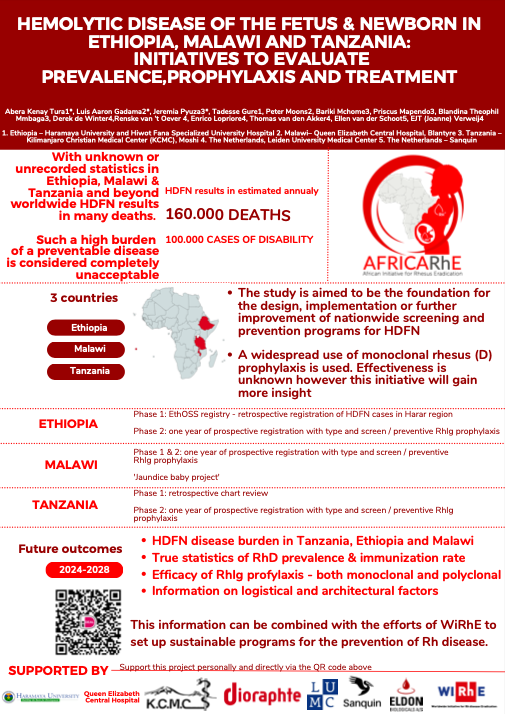The African Initiative to Eradicate Rh Disease (AFRICARhE) is more than a research project, is a collaboration of dedicated colleagues in Ethiopia, Tanzania, Malawi, and the Netherlands united by one goal: no baby should die of a preventable disease.
Together with stakeholders per country, we work to:
• Implement RhD screening and create accessible anti-D prophylaxis programs.
• Strengthen laboratories to secure long-term access to diagnostics.
• Conduct implementation research
• PhD programs and clinical mentorship.
• Engage communities and policymakers to ensure that solutions are equitable, locally owned, and culturally grounded.
Why this urgency cannot wait
Rh disease is preventable with one antiD shot per pregnancy —yet today thousands of babies still die every year. With each pregnancy, the disease strikes earlier and more severe, and women lose baby after baby.
• A global shortage of polyclonal anti-D now threatens access even in high-income countries.
• In many low- and middle-income settings, screening and prophylaxis are still absent or unaffordable.
AFRICARhE collaborates to increase African capacity while shaping global strategies for sustainable anti-D production, smarter use, and equitable distribution.
By combining science, policy, and local leadership, AFRICARhE aims to end preventable fetal and neonatal deaths from Rh disease in Africa—and to safeguard future mothers and babies everywhere!

